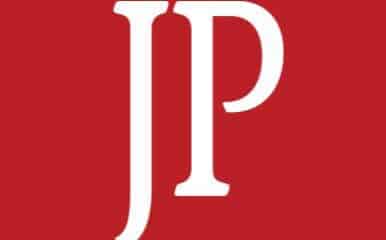Dr. Eran Lerman: Public rage in Lebanon could hurt organization’s political standing

The Media Line, 07.08.2020
By URI COHEN
As Lebanon grapples with the aftereffects of Tuesday’s devastating port blast that tore much of its capital apart, some in the Middle East are contemplating the political consequences and potential military fallout of the disaster.
While Lebanese citizens unite in grief and often heroic rescue efforts, the fury and revulsion they feel toward the country’s leadership is unmistakable.
How will the Lebanese government, specifically the influential Hizbullah faction supported by Iran, cope with unchecked anger emanating from the streets, and how does the colossal explosion – which, as of Friday morning, had claimed the lives of at least 157 people and left thousands injured and hundreds of thousands displaced – affect the organization’s strategy regarding its southern neighbor, Israel?
“Hizbullah’s situation has become even more precarious,” Col. (res.) Dr. Eran Lerman, a former deputy director of Israel’s National Security Council and current vice president of the Jerusalem Institute for Strategy and Security, told The Media Line.
“The Lebanese people are close to a social-political eruption, and as Hizbullah is an organic part of the government, the government’s injustices and stupidity are seen as [Hizbullah’s] own,” he said.
Col. (res.) Anan Wahabi of Haifa University, a former chief instructor at Israel’s National Defense College, agrees, calling it a potential “game-changer” and strategic turning point.
“For the first time in decades, there is a chance for implementing meaningful change and a system that transcends the various ethnic groups that make up Lebanon,” he told The Media Line.
Even before Tuesday’s massive blast, the result of what appears to have been the negligent storage of ammonium nitrate, Lebanon was in unprecedented economic turmoil. A total fiscal collapse, including historically high unemployment, gas and electricity shortages and a first-ever default by the country on its debts, had already led to mass protests across the country.
Wahabi points to a possible scenario that officials in Israel would be delighted to see: the gradual reigning in of Iranian involvement in the country and “a possible demand by the Lebanese public of Hizbullah to disarm and give up its military arm.”
Says Lerman: “Dragging Lebanon now to an open conflict with Israel will lead people to rightly question if [Hizbullah leader Hassan] Nasrallah is sane. Since his political instincts are pretty sound, I assume his appetite for escalation is very limited right now.”
Lerman stresses that this does not mean the Israeli military can rest easy.
“Israel should stay vigilant,” he stated. “It needs to make it clear that it’s not becoming complacent.”
Indeed, on Wednesday, Ibrahim Al Amine, editor of the pro-Hizbullah Al Akhbar newspaper and a man considered to have close ties to the organization, penned an op-ed promising that a Hizbullah attack on Israeli soil was “unavoidable.”
Wrote the prominent Lebanese journalist: “Israel should be concerned. If it believes that [Hizbullah] is in trouble… [or] that the port explosion will force it to cancel its plans… [then] Israel is mistaken.”
Hizbullah, which has been designated by Israel, the US and the European Union a terror group, has promised in recent weeks to avenge the death of one of its soldiers. The man was killed in Syria on July 20 during an airstrike that Hizbullah and others blame on Israel.
Last week, following a minor border incident in which Hizbullah fighters attempted to infiltrate into Israel but were driven back, the organization vowed that more would come.
Lerman believes Tuesday’s Beirut port disaster could be a game-changer, albeit not immediately. He points to Thursday’s visit to the city by French President Emmanuel Macron as an indicator.
“It’s interesting to note that Macron got there first,” he notes, saying this was “meant to signal to the public there that the West can help Lebanon out of its misery – but not without a cost.” Lerman was alluding to European demands on the Lebanese government to carry out fundamental reforms that would weaken Hizbullah’s financial and military stranglehold over the Land of the Cedars.
“The Lebanese people today don’t have a real capacity to throw off the hegemony of Hizbullah,” he says. “Not in the short term, at least. Any expectation of immediate sweeping change is a bit premature.”
Wahabi notes that Macron was received, as “expected,” with open arms.
“There won’t be European neo-colonialism anytime soon, but France, with the support of the US, will definitely be more politically involved in Lebanon,” he said. “It will attempt to oversee the distribution of humanitarian aid flowing in so that it doesn’t reach the wrong hands.”
While the Israeli military has announced no modifications to its deployment on the northern borders though is maintaining its high-alert status of recent days, Brig. Gen. Hidai Zilberman, head of the IDF Spokesperson’s Unit, extended words of comfort to the Lebanese.
“Israel has offered to send humanitarian and medical assistance to Lebanon via security and international channels,” he said in a statement, adding that Israel has “extensive experience in these areas” from “numerous humanitarian relief missions” around the globe.
“This is the time,” he stated, “to transcend conflict.”






 - בניית אתרים
- בניית אתרים